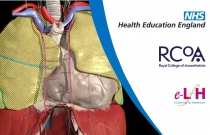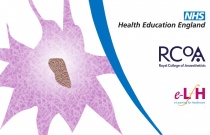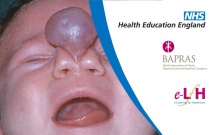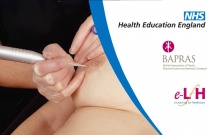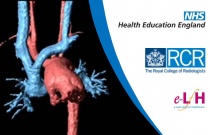Management of STEMI and its Complications
Jason Kendall and Elizabeth Florey
0.50 Hours
Acute coronary syndromes (ACS) encompass a range of presentations including unstable angina (UA), non-ST-segment elevation myocardial infarction (NSTEMI) and ST-segment elevation myocardial infarction (STEMI). This session addresses the management of STEMI and its complications.
Hepatorenal Syndrome: Update on Diagnosis and Treatment
Olga Baraldi, Chiara Valentini, Gabriele Donati, Giorgia Comai, Vania Cuna, Irene Capelli, Maria Lau
0.50 Hours
Acute kidney injury (AKI) is a common complication in patients with end-stage liver disease and advanced cirrhosis regardless of the underlying cause. Hepatorenal syndrome (HRS), a functional form of kidney failure, is one of the many possible causes of AKI. HRS is potentially reversible but involves highly complex pathogenetic....
Infections in Immunocompromised Hosts and Organ Transplant Recipients: Essentials.
Jay A. Fishman
0.50 Hours
The possible etiologies of infections are diverse;they range from common bacterial and viral patho-gens that affect the entire community to opportunis-tic pathogens that are clinically significant only forimmunocompromised hosts.
Goodpasture's Disease Signs and Symptoms
Prina Ruparelia
This session will discuss the symptoms and signs of Goodpasture’s disease.
Microstructure of the Lungs and Pleura
Tina McLeod
0.50 Hours
This session will cover the structure of the lungs and pleura at a cellular level. In particular there will be an emphasis on the structure and function relationships which allow gas exchange to occur.
Lumbosacral Plexus, Nerve Supply to the Leg and Foot
Ranjit Dulai and Anand Sardesai
0.50 Hours
This session describes the sensory and motor nerve supply of the lower limb and foot. This knowledge is essential for the successful performance of lower limb blocks.
Immunity
Sudheer Sukamar Potteth
0.50 Hours
This session will describe the function of the cells of the immune system, and explain the different types of immunity. The role of the various key components of the immune system will be explained and the differences between innate immunity and adaptive immunity highlighted. The concepts of immune deficiency, autoimmunity and i....
Gaseous Exchange: Hyper- and Hypo-Baric Pressures
Robert H Cruickshank FRCA
0.50 Hours
This session will introduce you to the physiological effects of altitude and the adaptations that occur with acclimatization. It also introduces the pathology and physiology of high pressure and decompression.
Effects of Anaesthesia on Lung Function
Andy Lumb
0.50 Hours
This session covers the basic science of those aspects of lung function not relating to gas exchange, focusing on the humidification of inspired gas, protection against inhaled pathogens, and the processing of drugs and hormones by the pulmonary circulation.
Functions of Nerve Cells 2
Lesley Bromley
0.50 Hours
This session covers the different types of nerves and their function, the tissue that supports nerves and its function and the production of chemical transmitters. It also covers the structure of nerves and how this affects the speed of conduction.
Gastric Function
Diana Jolliffe
0.50 Hours
The stomach acts as a reservoir and converts the episodic input of food from the oesophagus to a more continuous output of chyme into the duodenum. It is important in the mechanical breakdown of food and the chemical digestion of proteins.
Interactions Between Molecules
Mary Stocker
0.50 Hours
This session explores the forces that hold molecules together and govern their interaction. This will include bonding, intermolecular and intramolecular attractions.
Inhalational Drug Administration
James Grey and Sue Hill
0.50 Hours
This session will further develop concepts introduced in an earlier session on inhalational anaesthetic agents. Factors affecting the onset and offset of action of inhalational anaesthetics will be discussed in more detail and some other agents will be introduced.
Introduction to Paediatrics for Paramedics
Dr Fenella Corrick
This session will describe some of the key differences between assessing and treating children compared with adults. Later, it will identify the age-specific features including observations and developmental milestones that can contribute to clinical assessments.
Midline Facial Clefts
Tom Pidgeon and Adel Fattah
0.50 Hours
This session will describe how to assess a patient with a midline facial cleft and explore the main techniques that are available for surgical repair.
Median Nerve Compression Syndromes - Diagnosis
Andreas Shiatis, Rachel Thornton and Effie Katsarma
0.50 Hours
This session will explore the aetiology of median nerve compression, describe the clinical features of median nerve compression and explain how to interpret EMGs.
Nipple Areolar Reconstruction
Roshan Vijayan and Baljit Dheansa
0.50 Hours
This session will describe the techniques that are used to reconstruct the nipple-areolar complex (NAC), outlining the advantages and disadvantages of each technique and exploring the role of tattooing.
Normal Cardiac Flow Patterns by Echocardiography
Navroz Masani and Duncan Eccles
0.50 Hours
This session will cover the standard measures of intracardiac flow that are acquired, using colour flow mapping and spectral Doppler, in a standard adult echocardiogram. This includes normal transvalvar flow, left ventricular diastolic filling parameters and the use of tricuspid regurgitation to estimate pulmonary arterial press....
Hypoplastic Left Heart Syndrome
Andrew Taylor
0.50 Hours
This session provides a description of the anatomy and staged operative repair of hypoplastic left heart syndrome.
Basic Radiographic Signs of Infection
Susan Kearney
0.75 Hours
This session looks at signs of infection as seen on plain radiographs and computed tomography (CT).
Modelling with Mathematics: Examination of Model
Steven Cruickshank
0.50 Hours
This session builds upon the model in the previous session, and introduces a graphical approach to input-output problems. A graphical depiction allows visualization of simultaneous variation of CO2 and alveolar ventilation in the model. This is extended to an example from the physical sciences.
Clinical Studies Part Two: Study Design
Jason Walker
0.50 Hours
This session builds on the knowledge gained from part one. It covers how a clinical trial is designed, the various types of clinical trial and how the outcome of a trial is evaluated.
Introduction to Basic Radiation Protection
Rob Loader
0.50 Hours
This session aims to ensure the safety of staff within the hospital by providing them with information on the risks of exposure to ionising radiation, the importance of following the safety procedures that are in place and the precautions each person can take to minimise the risk. It is aimed at any staff who regularly work in a....
Let’s Get Real: Creating a Practical Data Security Program
Julia Hesse and Sonia E Arista, CISM
1.00 Hours
Let’s Get Real: Creating a Practical Data Security Program. CISO and legal experts will identify practical tactics for developing a data security program among disparate vendors by conducting and documenting risk assessments and application-specific security standards. They will summarize regulatory guidance on effective securi....
Improve Patient Health Through Real-Time ADT Integration
Megan Lacanne and John Whitington
1.00 Hours
Coordinating the care of the seriously and chronically ill is exacerbated when care teams struggle to find out where their patients are. South Country Health Alliance (SCHA) in Minnesota’s transition of care vision was to be able to proactively plan patient needs post-discharge to facilitate a positive care transition. Historica....




